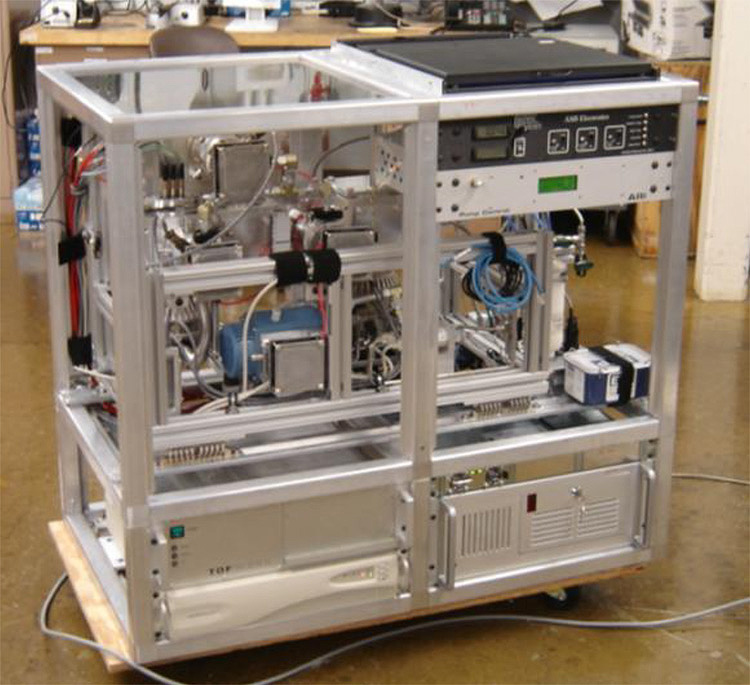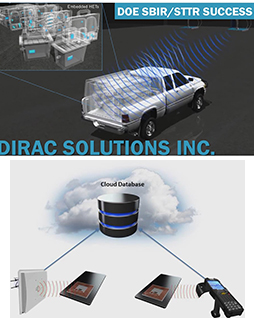Aerodyne Develops an Aircraft-Deployable Precision Aerosol Analyzer
Aerodyne Research Inc. develops an aerosol mass spectrometer (AMS) that fills a critical need for size-resolved, quantitative chemical composition data on aerosol particles.

R&D Opportunity
Aerosol particles have important impacts on visibility, acid deposition, climate, and human health. Despite the significance and ubiquity of aerosols, large uncertainties remain in their quantification. Organic compounds are known to account for a large part of ambient aerosol mass in many locations. Our ability to measure and characterize these compounds is in a "dismal state" according to a recent review. Particularly lacking are real-time, size-resolved, quantitative instruments for the measurement of the chemical composition of organic aerosols.
Solution
The Aerodyne aerosol mass spectrometer (AMS) was developed to fill a critical need for size-resolved, quantitative chemical composition data on aerosol particles. In this project, the instrument was upgraded with a time-of-flight (ToF) mass spectrometer, enabling improved mass resolution, and repackaged for aircraft deployment.
Impact
This technology has led to major improvements in our understanding of the sources, sinks, and atmospheric transformations of ambient aerosol. The instrument developed in this project was deployed on board the DOE Gulfstream (G1) research aircraft during the MaxMex atmospheric monitoring campaign over Mexico City in 2006 and the VOCALS campaign in Chile in 2008. This program contributed to the delivery of over 70 ToF-AMS systems ($25 million in revenue), about 10 of which have been deployed on aircraft platforms worldwide.
Contact
Dr. Charles E. Kolb
kolb@aerodyne.com
45 Manning Road, Billerica, MA 01821-3976
Related Links
Aerodyne Research, Inc: www.aerodyne.com
Highlight Categories
Program: SC-BER



